How long does it take for a puppy to get used to their new home?
The period of adaptation can vary from dog to dog
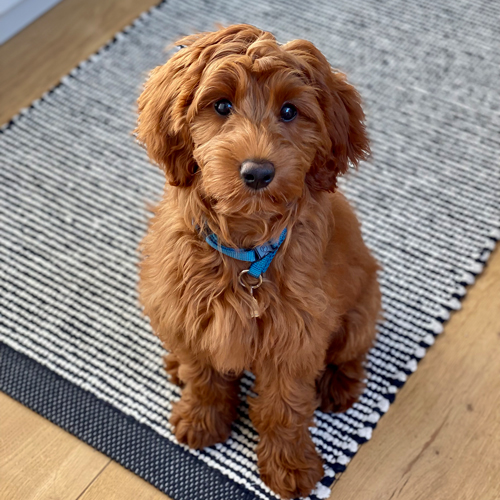
THE PUPPY'S ARRIVAL AT HOME
Approximate reading time: 9 minutes
Welcoming a puppy into the family is undoubtedly a moment of the greatest joy and happiness. Dogs are loyal, affectionate and adorable animals that fill our lives with love and fun, although having them implies a great responsibility that begins from the very first moment they arrive at our home. All dogs, especially puppies, need a period of adaptation when they change their environment.
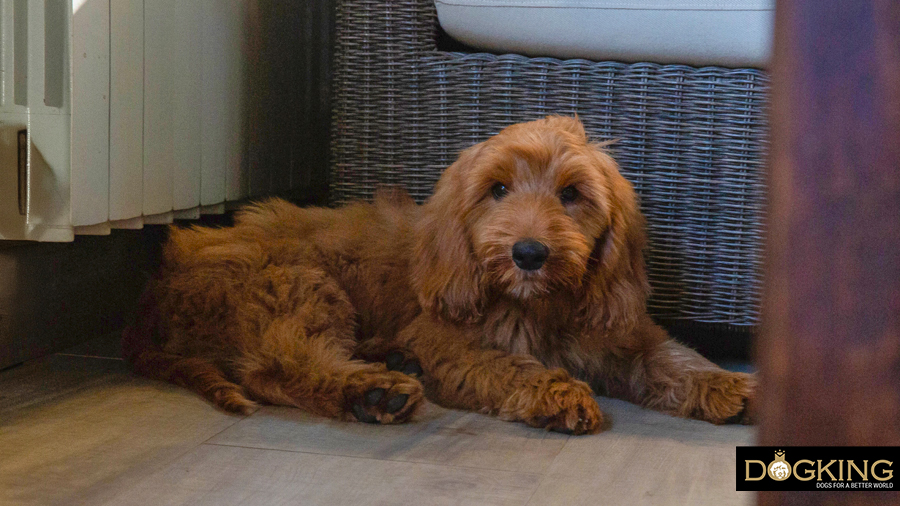
In their first months of life, dogs are very vulnerable to stimuli. Bear in mind that when a puppy arrives in a new home, apart from the change they have to manage the separation from his litter and carers, they suddenly find themself in a strange environment, with new people and different smells. This is why the puppy can be tense, shy or even cry during the first days of cohabitation, a process that can last from a few days to several weeks depending on each case. This new situation can be very stressful for the puppy, and as caregivers and those responsible for their welfare, we must be patient and do our best to facilitate the puppy's adaptation to the new home.
Table of contents
1- How do I make my puppy comfortable in their new family?
2- What if my puppy cries when left alone?
How do I make my puppy comfortable in his new family?
You must give them time and wait for them to gradually get used to their new home and the people who live there. Don't hesitate, it's only a matter of time before you become their new best friends. Be patient!
Some dogs may avoid food and not pee or poo for hours at a time due to the change of environment, causing their new family to worry. Be aware that a dog's true personality will not emerge in the first few days of living together if they feel fearful or uncomfortable, so do everything you can to make them feel comfortable and integrated. Take note of these tips!
-
Let them explore their new home (at their own pace)
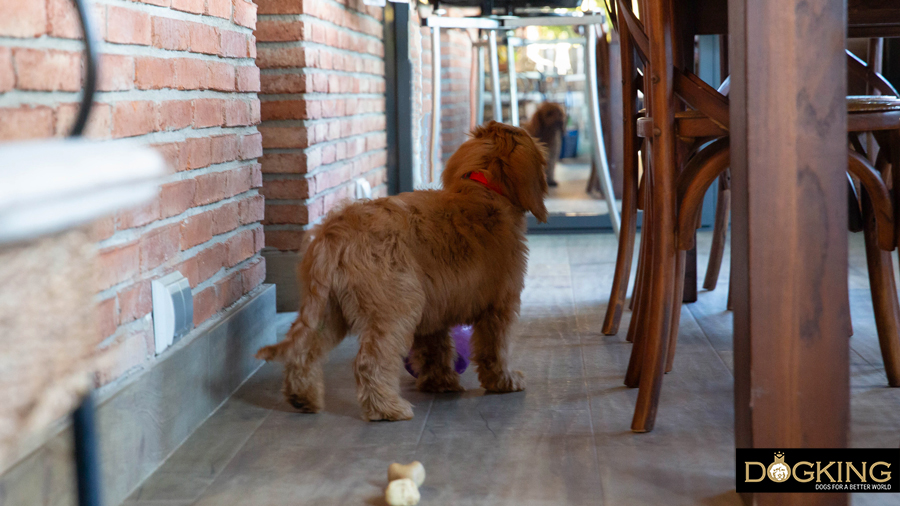
After being introduced to the park and spending a little time in it, some puppies may be curious and lively and want to explore the whole space as soon as they arrive, while others may be more cautious. Either way, it's OK. You should allow your puppy to investigate their surroundings, internalising new smells and observing all the new things around them. However, you should never force them. If your puppy hides when you get home, let them come out when they are ready. From time to time, say calm, loving words to them. You can also motivate them with a small piece of their food. You will see that they will gradually dare to explore a little further and further.
-
Show them their playpen
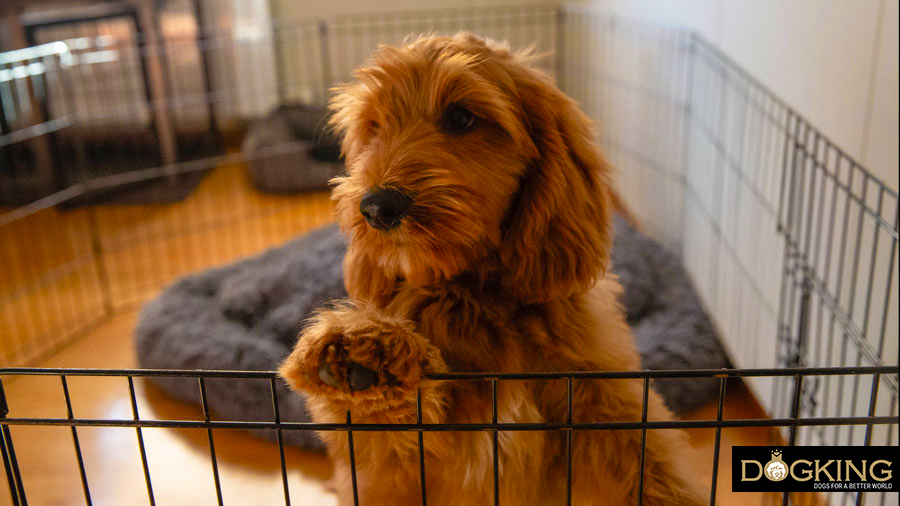
The playpen will be the area of the house where your puppy will rest, sleep and relax when they needs to, or when you can't be with them In this section you should place the food and water bowl, the bed, the pee pad tray for them to do their business until they can go outside and some toys to keep them entertained. Make sure that meals, the first games and the first strokes take place in the park so that your puppy associates it with a positive stimulus.
Create routines for rest, stimulation and socialisation as there must be a balance, take them out of the park for half an hour every 2 hours and dedicate those 30 quality minutes to them to create a bond.
It is recommended that puppies stay in their playpen until they are 8 months old. This does not mean that they have to stay in the playpen 24 hours a day, but it does mean that they should be in the playpen at times when we cannot supervise them, at night and during the day when they need to rest and be calm. To get them used to being in their playpen, teach them from the moment they arrive home and adapt the routines according to their age, as they vary according to the number of months your puppy is.
-
Give them affection, but don't overwhelm
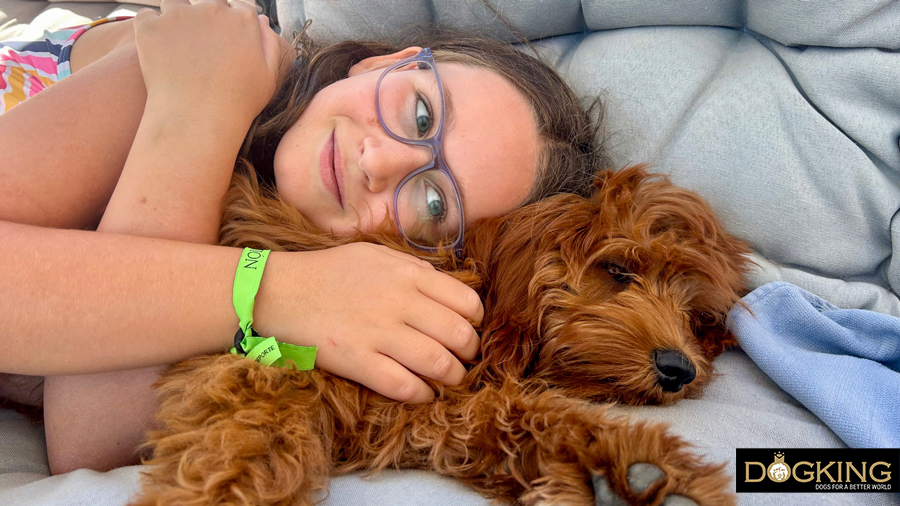
Dogs are adorable at any age, but when they are puppies they are simply irresistible. However, make sure that your first contacts with your dog are calm. Let him come to you and then show your love with gentle caresses on the neck, behind the ears or on the upper back - many dogs' favourite areas. Don't force him to be on top of you or cuddle him, but try to get him to come to you by calling him or offering him a piece of food. Little by little you will see that he will be more open and will enjoy your cuddles and caresses more and more.
-
Play and stimulation
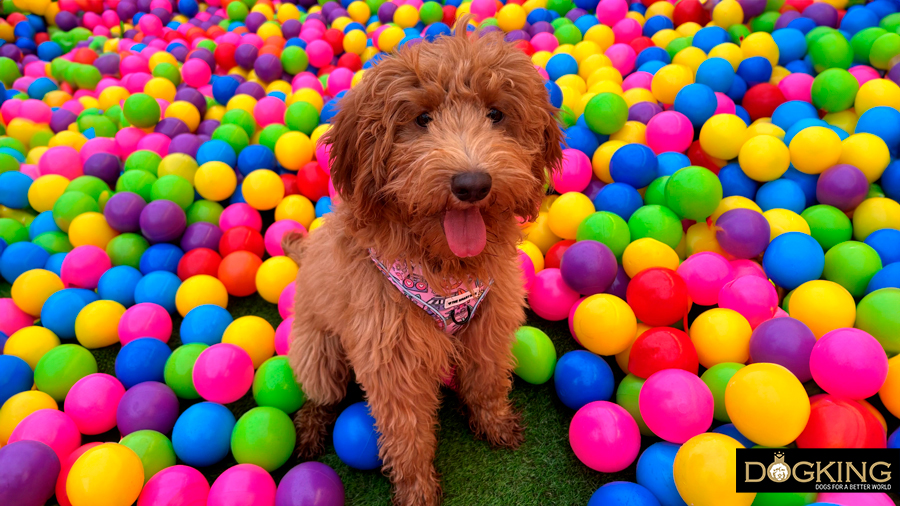
Puppies have a lot of energy, and although they also sleep long hours, they need play and stimulation to feel fulfilled. Through play, both physical and olfactory, puppies learn and complete their cognitive development, so it is very important that you dedicate some time to play with your pet. It is normal that at the beginning you will have to try several toys until you know which one they enjoy the most, just make sure they are of good quality and safe for your puppy's teeth. Your puppy will probably soon tire of playing and want to retire for a nap. It's normal, let them rest and they'll soon come back to you for more playtime.
-
Don't scold your puppy
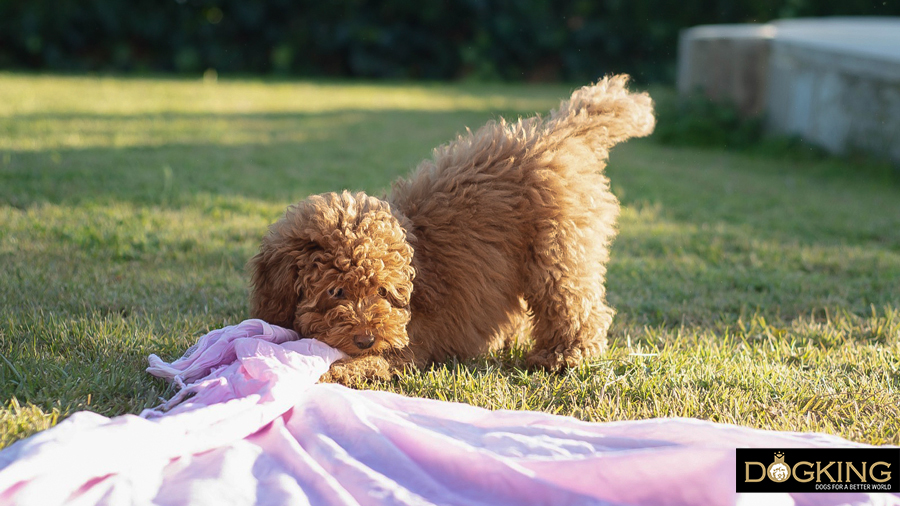
When a puppy arrives in a new home they have a lot to learn. Apart from the added stress of changing environment, which can lead to some temporary behavioural problems, your dog will need to learn how to relieve themself in the pee pad tray, to tolerate the lead, to follow early cues... Mistakes happen in all learning, but when your dog fails, whether it's peeing in the house, chewing on a slipper or breaking something while playing, don't scold them by shouting. At this tender age, a puppy needs a safe environment, and if you scold them loudly, they will be frightened and frustrated. Set limits by saying ‘no’ and redirecting their attention, but don't get upset or punish them. To educate your puppy you only need to practice positive reinforcement, rewarding them with petting or small pieces of food when they get it right and do things the way you want them to. This will turn them into a stable, well-behaved and balanced adult dog.
-
Create a safe environment
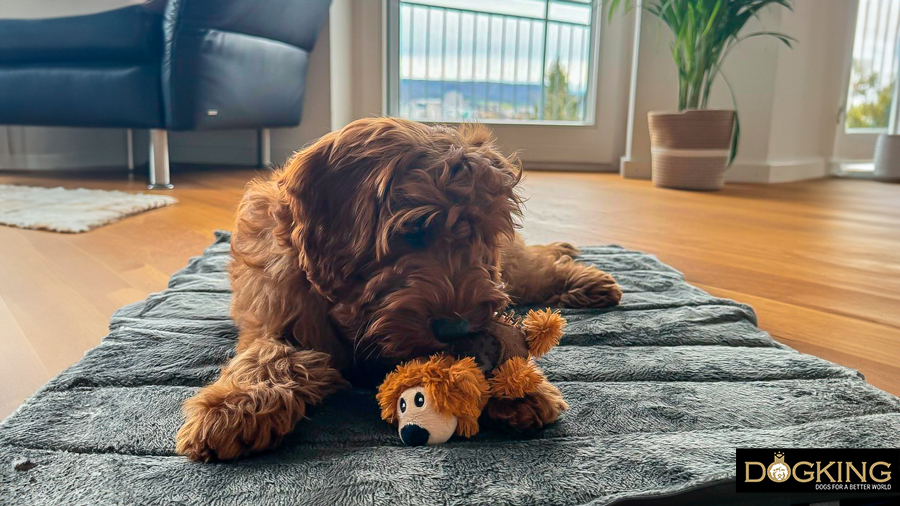
If you are welcoming a puppy into your home, try to make it a haven of peace. Forget shouting and limit loud noises. All members of the family should cooperate in this. To have a balanced dog, the environment must be balanced.
Check the house to ensure that your dog does not have access to danger and supervise them at all times. Make sure your dog has all their needs met, with good food adapted to their age, fun toys, exercise and attention. If at first your dog is a little shy and prefers to spend time alone, don't force them, respect their time but don't stop paying attention to them.
-
Establish routines
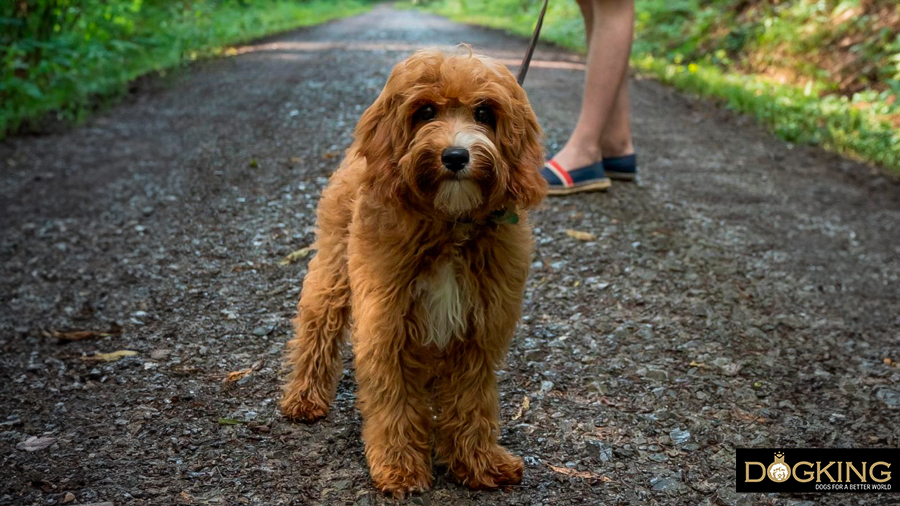
Dogs love routines, as it helps them to reduce uncertainty and know what is going to happen next. This is especially beneficial for puppies coming into a new home. Establishing routines and schedules will help your dog feel more secure in the process of settling in. We recommend creating routines for eating, resting and playing so that your pet can predict what's coming next and feel more calm and confident.
-
Supervise interaction with other children or animals.
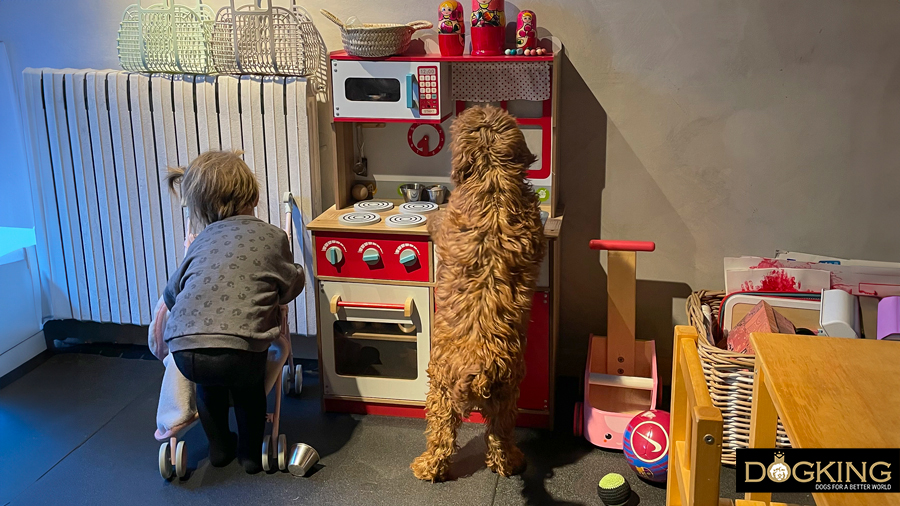
The already delicate arrival to the puppy's home can be complicated if, in addition, there are children in the house. Small children tend to be more impulsive and noisy and could overwhelm the puppy if we do not set limits, causing them to react negatively. It is therefore important that you teach your children how to treat the new member of the family correctly and that you are attentive to their relationship in the first few days.
If you already have other dogs or cats in your family, we recommend that you introduce them to each other gradually, so that they can smell each other and get to know each other. Gradually you can let them spend more time together, always supervising their interactions, until they become good friends.
What to do if my puppy cries when left alone?
A very common behaviour in puppies is crying when we are not with them. Remember that your pet has been, until that moment, permanently accompanied, so it is logical that they feel lonely during the night, when we are sleeping, or if we are simply absent from their side for a few minutes. However, it is essential that your puppy learns to be alone so that they develop a healthy attachment to their caregivers, thus avoiding a dependent relationship or separation stress disorder. If you go to their playpen every time they cries, you will be reinforcing this behaviour. It is best to expose your puppy to solitude, but little by little. During the day, leave the room for a few moments and come back in when the crying stops. Reward your puppy and, at each training session, leave them alone for a little longer. Gradually, you will see that they will get through the nights much better.
Living with a dog is a fascinating journey full of positive aspects, but it also requires effort and dedication, especially during the first few days in the family. With patience and love, your puppy will soon adapt to the new home and become your most faithful friend, accompanying you at every moment of your life.